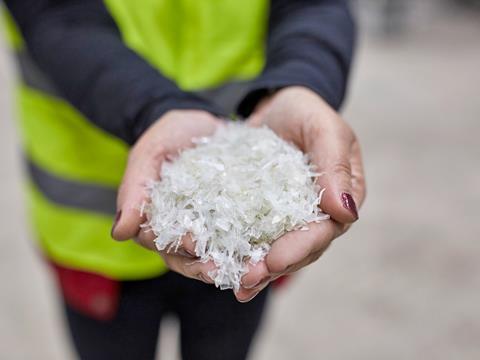
Borealis and TOMRA have announced the operational start of their advanced mechanical recycling demo plant in Lahnstein.
The state-of-the-art plant processes both rigid and flexible plastic waste from households. According to the companies, it will produce the high-purity, low-odour solutions with high product consistency and light colour fractions necessary for use in plastic applications in various industries, including automotive and consumer products.
The purpose of this demo plant is to generate material for brand owners and converters to qualify, validate, and prove fit for use in their highly demanding applications. The partnership hopes that technical success will set the groundwork for a commercial-scale advanced recycling plant.
“This plant is just the beginning of what’s possible when key players in the value chain come together to make a truly significant impact in the market,” says Volker Rehrmann, executive vice president and head of circular economy at TOMRA.
“Having just launched the new Circular Economy Division, it is clear what a large role waste management and pivotal projects like this have on moving towards a sustainable future. We are proud to have initiated one of the most advanced mechanical recycling plants when it comes to post-consumer polymer waste.”
The operation of the plant is a joint enterprise between Borealis, TOMRA, and Zimmermann. Borealis says that it is responsible for the plant’s commercial side, and that it contributes its expertise and knowledge in innovation, recycling, and compounding.
Likewise, TOMRA contributes as a provider of technology-led solutions and brings its expertise, established process, market knowledge, and experience with advanced collection and sorting systems.
Zimmermann is a waste management company that is specialised in sorting multiple types of waste, including plastics, and is responsible for plant operations and product quality.
“At P&G we are making packaging with the ‘next life’ in mind to help drive a more robust circular economy. We must increase the supply of high-quality recycled plastic to enable the industry to deliver on this vision,” says Gian De Belder, technical director of R&D packaging sustainability at Procter & Gamble.
“The innovative new approach that Borealis is taking shows the potential to step-change both the quantity and quality of PCR available for our brands, and help us to achieve our 2030 goal to reduce our use of virgin plastic in packaging by 50%, or 300 kilotonnes annually. Early tests of the material look very promising!”
“One major challenge towards more circular packaging is the availability of high-quality recycled plastics that can be used in the packaging of our brands,” adds Thorsten Leopold, director of international packaging technology, home care at Henkel.
“We are, therefore, very excited that this project brings together three proven experts along the value chain with the ambition to lift mechanical recycling to a new level.”













